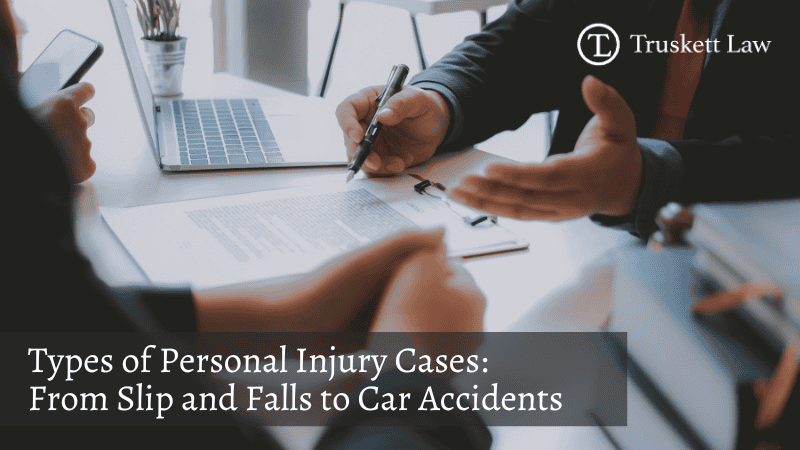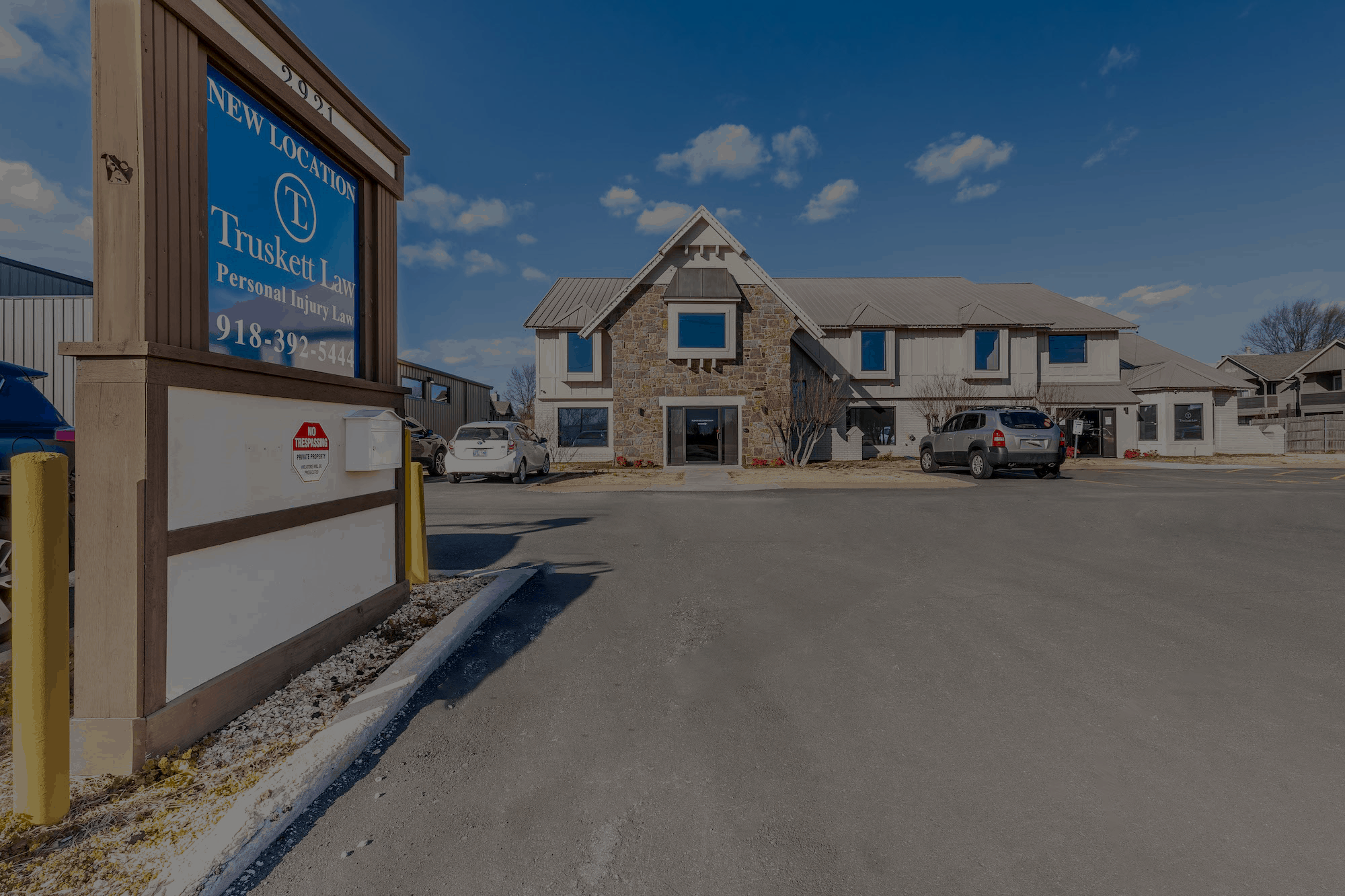
29 Apr Types of Personal Injury Cases: From Slip and Falls to Car Accidents
Personal Injury Cases: What You Should Know
Personal injury cases encompass a wide range of accidents and incidents that result in harm to an individual’s body, mind, or emotions due to someone else’s negligence or intentional actions. From slips and falls to car accidents, these cases can have significant physical, emotional, and financial implications for the victims.
Understanding the different types of personal injury cases is crucial for both prevention and seeking legal recourse if necessary.
Slip and Falls: A Common Hazard
Slip and fall accidents are among the most common types of personal injury cases. These incidents occur when someone slips, trips, or falls due to hazardous conditions on someone else’s property. Factors contributing to slip and fall accidents include wet floors, uneven surfaces, poor lighting, or lack of warning signs. Victims of slips and falls can suffer injuries ranging from bruises and sprains to fractures and head trauma.
Slip and fall cases often hinge on premises liability laws, which hold property owners responsible for maintaining safe conditions for visitors. If negligence is proven, victims may be entitled to compensation for medical expenses, lost wages, and pain and suffering.

Car Accidents: The Perils of the Road
Car accidents are another prevalent type of personal injury case, accounting for millions of injuries and fatalities worldwide each year. These accidents can result from various factors, including distracted driving, speeding, drunk driving, adverse weather conditions, and mechanical failures. Injuries sustained in car accidents can be severe, ranging from whiplash and broken bones to spinal cord injuries and traumatic brain injuries.
Determining liability in car accident cases often involves assessing factors such as negligence, recklessness, and adherence to traffic laws. Victims may pursue compensation through insurance claims or personal injury lawsuits to cover medical bills, vehicle damage, lost income, and other damages.
Medical Malpractice: Errors in Healthcare
Medical malpractice occurs when healthcare professionals deviate from the standard of care, resulting in harm to patients. Common examples include surgical errors, misdiagnoses, medication mistakes, birth injuries, and infections acquired in healthcare settings. Medical malpractice cases require extensive evidence and expert testimony to establish negligence and causation.
Victims of medical malpractice may suffer physical injuries, worsened medical conditions, emotional distress, or even wrongful death. Pursuing a medical malpractice claim involves navigating complex legal procedures and statutes of limitations, making legal representation crucial for achieving a successful outcome.
Product Liability: Defective Products
Product liability cases arise when defective or dangerous products cause harm to consumers. These defects may stem from design flaws, manufacturing errors, inadequate warnings, or marketing misrepresentations. Product liability claims can involve various products, including vehicles, pharmaceuticals, appliances, toys, and food items.
Injured consumers can seek compensation from manufacturers, distributors, or retailers for damages such as medical expenses, lost income, and pain and suffering. Proving liability in product liability cases often requires expert analysis, product testing, and documentation of injuries and damages.

Assault and Battery: Intentional Harm
Assault and battery are intentional torts that involve harmful or offensive contact with another person. Assault refers to the threat of imminent harm, while battery involves the actual physical contact or injury. These cases can arise in various settings, including domestic violence, bar fights, workplace altercations, and sports events.
Victims of assault and battery may suffer physical injuries, emotional trauma, and financial losses. Criminal charges may accompany civil lawsuits in cases involving intentional acts of violence, with perpetrators facing both legal consequences and potential civil liability for damages.
Dog Bites: Animal Encounters Gone Wrong
Dog bites and animal attacks are one of the most common types of personal injury cases, especially among children and outdoor enthusiasts. Injuries from dog bites can range from minor puncture wounds and lacerations to severe tissue damage and infections. In addition to physical injuries, victims may experience emotional distress and post-traumatic stress disorder (PTSD) following a traumatic animal encounter.
Dog owners are typically liable for injuries caused by their pets, regardless of whether the animal has a history of aggression. Depending on state laws, liability may extend to landlords, property owners, or others responsible for the dog’s care. Victims of dog bites may pursue compensation for medical expenses, lost income, and pain and suffering through personal injury claims.
Wrongful Death: Seeking Justice for Loss
Wrongful death claims arise when a person dies due to the negligent or intentional actions of another party. These cases can result from various incidents, including car accidents, medical malpractice, workplace accidents, or criminal acts. Wrongful death lawsuits allow surviving family members to seek compensation for the deceased’s medical expenses, funeral costs, lost income, and the emotional pain and suffering caused by their untimely death.
Proving liability in wrongful death cases often involves demonstrating negligence, recklessness, or intentional misconduct on the part of the defendant. Surviving family members, such as spouses, children, or parents, may pursue legal action to hold responsible parties accountable and obtain financial support to cope with their loss.
While no amount of compensation can replace a lost loved one, pursuing a wrongful death claim can provide a sense of closure and justice for grieving families.
Steps in Pursuing These Types of Personal Injury Cases
Getting started with a personal injury case can feel overwhelming, but with the right guidance, you can navigate the process effectively. The first step is to prioritize your health and safety by seeking medical attention for your injuries.
Documenting the incident is crucial, so be sure to gather evidence such as photographs of the accident scene, witness statements, and any relevant medical records or bills. It’s essential to report the incident to the appropriate authorities, whether it’s the police for car accidents or the property owner for slip and falls.
Once you’ve taken these initial steps, consider consulting with a reputable personal injury attorney who specializes in cases similar to yours. An experienced attorney can assess the strength of your case, explain your legal rights and options, and guide you through the complexities of the legal process. They can also handle communication with insurance companies and negotiate on your behalf to pursue fair compensation for your injuries and losses.
By taking proactive steps and seeking professional legal assistance, you can set yourself up for a successful personal injury claim and work towards obtaining the justice and compensation you deserve.

In Conclusion
Navigating the complexities of these types of personal injury cases requires a thorough understanding of legal principles, evidence gathering, and negotiation skills. Whether you’ve been injured in a slip and fall, car accident, or other incident, seeking prompt medical attention and legal guidance is essential for protecting your rights and pursuing fair compensation.
By familiarizing yourself with the various types of personal injury cases and the steps involved in seeking justice, you can make informed decisions and advocate for your well-being.
Related Questions
What should I do if I’m injured in a slip-and-fall accident?
If you’re injured in a slip and fall accident, seek medical attention immediately, document the scene, gather evidence, report the incident to the property owner or manager, and consult with a personal injury attorney to discuss your legal options.
How long do I have to file a personal injury lawsuit?
The statute of limitations for filing a personal injury lawsuit varies by state and type of case. It’s essential to consult with an attorney promptly to ensure you meet any deadlines for taking legal action.
Can I still file a personal injury claim if I was partially at fault?
Yes, you may still be able to recover damages in a personal injury case even if you were partially at fault for the accident. However, your compensation may be reduced based on your degree of fault, depending on the laws of comparative negligence in your state.
What evidence is needed to prove liability in a personal injury case?
Evidence needed to prove liability in a personal injury case may include photos or videos of the accident scene, eyewitness statements, medical records, accident reports, expert testimony, and any other documentation related to the incident and your injuries.


Sorry, the comment form is closed at this time.